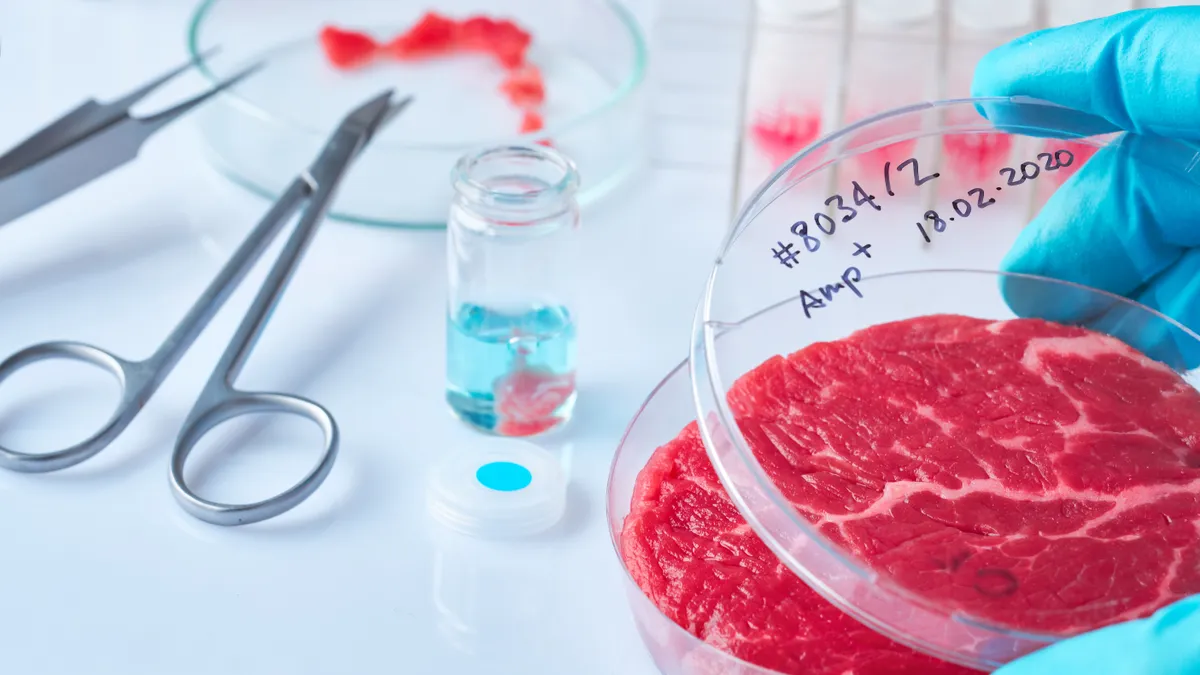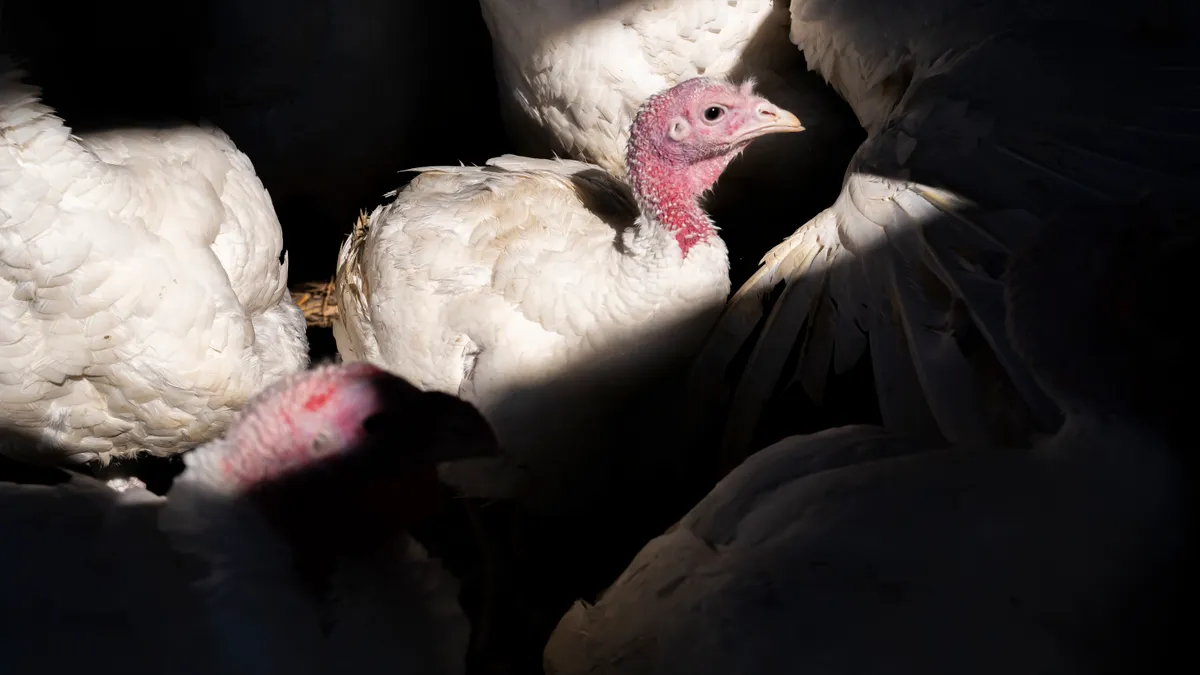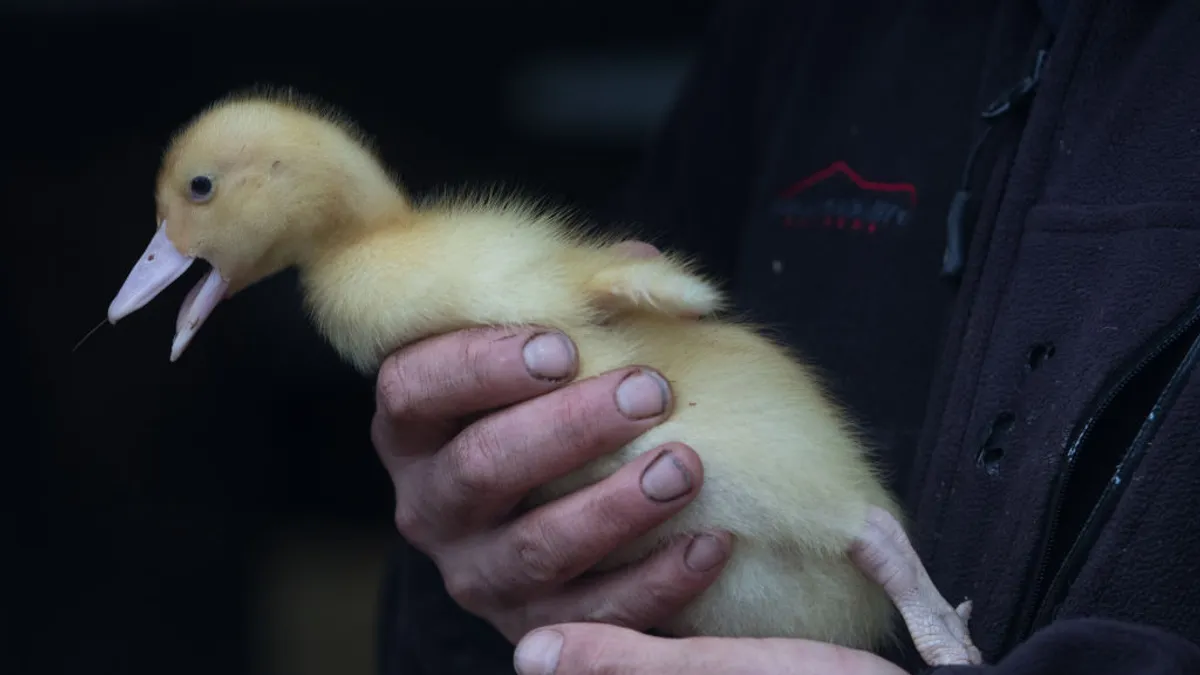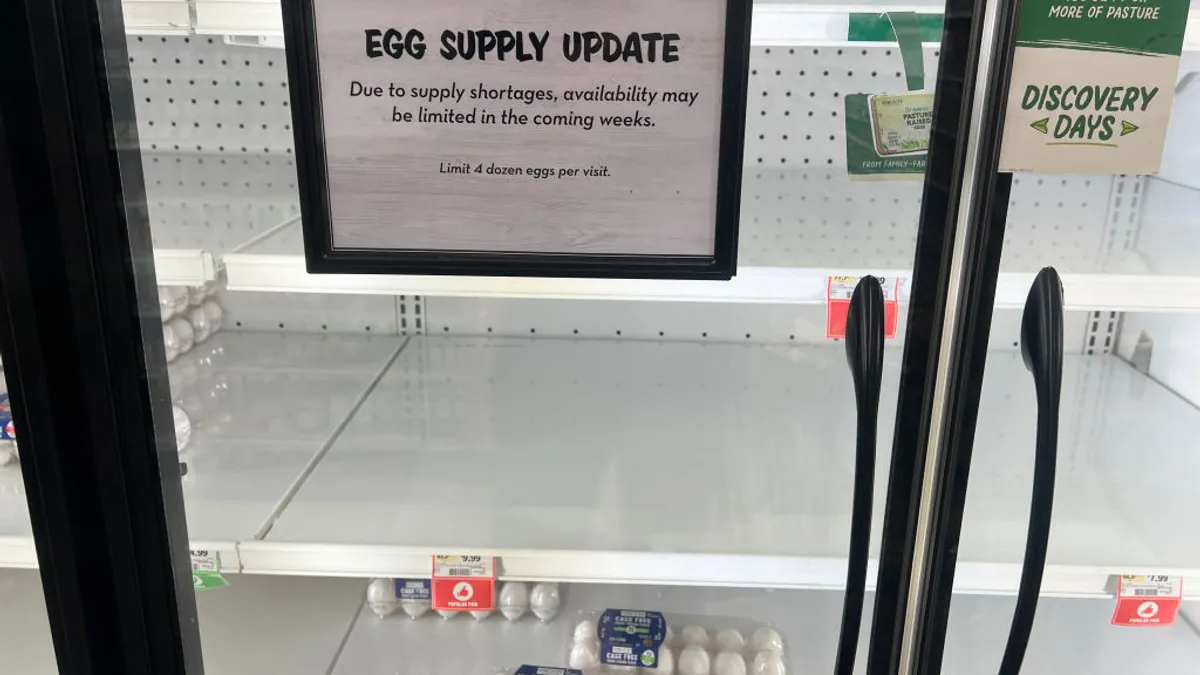The cultivated meat industry made great progress in 2023, with July marking its official regulatory greenlight when the USDA and FDA gave Upside Foods and Eat Just permission to sell in the U.S.
Since then, though, the space has yet to make significant gains as capital funding has been drying up and the cost of production remains high.
Since the approval, both companies began selling their product at exclusive restaurants in the U.S. — Upside Foods at Bar Crenn in San Francisco and Eat Just at China Chilcano, a Jose Andres restaurant in the nation’s capital. As of this week, though, neither restaurants serve the product.
Since the industry’s first introduction to the market, consumer education has been high on the list when it comes to priorities, and recent backlash from both legislators and organizations may show that companies have a lot of educating still to do.
Discussion to benefit the consumer
A growing list of states have introduced legislation that focuses on the labeling of cultivated meat. Arizona was the most recent to do so in January with a bill that sought to prohibit the labeling of any products as “meat” that is not derived from livestock or poultry and instead were produced in a laboratory from cultured animal cells.
“This reflects a growing chorus of voices concerned about lab-grown meat, the lack of long-term health and nutritional studies, and the use of immortalized cells,” said Jack Hubbard, executive director of the Center for the Environment and Welfare.
Hubbard also said that as the industry matures, you may see an unlikely partnership with parents, natural food advocates, farmers in the agriculture community, and people skeptical of something like this to come together and spark debates and discussions.
“Most of the coverage around [cultivated meat] thus far has been about the intersection of technology and food, and not enough on the questions that I think consumers will want answered,” said Hubbard. “The use of immortalized cells in food has been done before, and the environmental benefits of cultivated meat are worth questioning as well,” he said.
CEW launched a campaign in December 2023 to “educate the public” about the technology used to develop cultivated meat. The campaign also features a website LabMeat.com, a video addressing how the product is manufactured and paid digital ads on X, formerly known as Twitter, Facebook and TikTok.
“Debate and discussion is warranted, especially now, and I think that no one more than consumers will benefit from that discussion,” said Hubbard.
A threat to innovation
On the other end of the spectrum are organizations like the Good Food Institute, a nonprofit working to accelerate alternative protein innovation.
“The labeling bills are really interesting. They’re a problem because they threaten consumer choice” said Jessica Almy, senior vice president of policy and government relations for GFI.
Though supporters of these bills say that they are protecting consumers, no one is buying cultivated meat under the belief that it is the same as its conventional counterpart, she said.
“Federal law already protects consumers,” said Almy. “The USDA inspects and approves meat and poultry labels, including the cultivated meat products to ensure they're not misleading. So there's no problem here that needs to be addressed.”
But supporters of labeling bills and Hubbard disagree.
“What you’re talking about is serving a product to people that is essentially growing in a bioreactor with different chemicals and hormones to encourage growth, and then packaging it,” he said, “education and transparency is key.”
Cultivated meat companies do not see legislative pushback as a threat though, and instead as a prohibition to consumer choice.
“It's disappointing because the cultivated meat industry is using innovation to bring new foods to the American consumers and to really enrich the marketplace for consumers and give them more choices. So it's frustrating that they could be even contemplating efforts to make it harder to do business in those states,” said Almy.
How companies are responding
Since regulatory approval was granted in July to Upside Foods and Eat Just, there hasn’t been much more movement in getting the product to consumers.
In September of last year, Upside Foods announced its first large-scale production plant Rubicon, which aimed to take it to its “next phase of growth.”
Right now, the space is dealing with a lot of “pent-up demand,” according to Upside Foods COO Amy Chen, “people are asking ‘when is it coming to me when can i try it,’ but we are not available at that scale yet.”
Chen said that the catalyst for the type of legislation introduced by conservative leaders like Florida Gov. Ron DeSantis is a fear that cultivated meat will displace ranchers or farmers, but that is “completely misguided.”
“Our intention has always been to be an ‘and,’ not an ‘or.’”




















